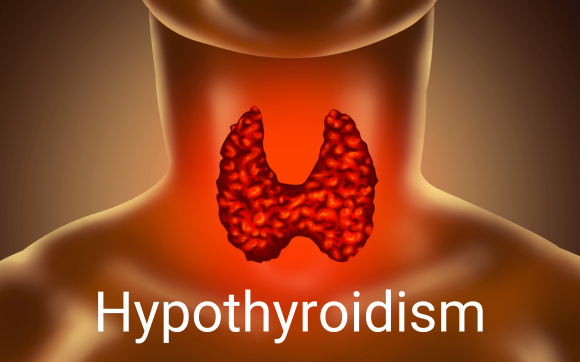Understanding Hypothyroidism and Hashimoto’s Thyroiditis
The thyroid is a butterfly-shaped gland located at the base of the neck and is part of the endocrine system. It produces hormones essential for regulating metabolism, and plays a critical role in controlling body temperature, energy levels, menstrual cycles, mood, and heart rate.
How Common Is Hypothyroidism?
According to the National Institutes of Health, nearly 5 out of 100 Americans ages 12 and older suffer from hypothyroidism. Women are significantly more likely to develop hypothyroidism than men, and risk increases with age.
Key Nutrients for Healthy Thyroid Function
Your thyroid relies on adequate vitamins and minerals to function properly.
Essential nutrients include:
-
Iodine
-
Selenium
-
Copper
-
Zinc
-
Iron
-
Chromium
-
Magnesium
-
Vitamins A, C, D, E
-
B-complex vitamins
Deficiency or excess in these nutrients can negatively impact thyroid hormone production and function.
Medications That Affect Thyroid Function
Certain medications may interfere with thyroid health, including:
-
Amiodarone
-
Lithium
-
Oral estrogen and birth control pills
-
Beta-blockers
What Is Hypothyroidism?
Hypothyroidism is a chronic condition caused by decreased production of thyroid hormones—thyroxine (T4) and triiodothyronine (T3). Because thyroid receptors are located throughout the body, low hormone levels can impact multiple systems.
Untreated hypothyroidism can lead to:
-
Elevated cholesterol
-
Congestive heart failure
-
Fibromyalgia
-
Myxedema (severe hypothyroidism)
-
Neurological complications
-
In extreme cases, death
Causes of Hypothyroidism
Several mechanisms can cause hypothyroidism:
-
Malfunction of the pituitary gland, which secretes TSH (thyroid-stimulating hormone)
-
Low production of T4 or T3 despite normal TSH levels
-
Poor response of cell receptors to thyroid hormone
Contributing factors may include:
-
Autoimmune disorders
-
Iodine deficiency
-
Environmental toxins (heavy metals, endocrine disruptors)
-
Postpartum thyroiditis
-
Hyperthyroidism treatment or thyroid surgery
-
Nutrient deficiencies
-
Chronic stress or excessive fasting
Symptoms of Hypothyroidism
Hypothyroidism can present with a wide range of symptoms, including:
-
Weight gain
-
Constipation
-
Puffy face, dry skin, and hair
-
Hair loss or thinning (including outer eyebrows)
-
Chronic fatigue
-
Cold intolerance
-
Joint and muscle pain
-
Depression
-
Slow heart rate
-
Irregular or heavy menstrual cycles
-
Brain fog
Evaluation for Hypothyroidism
A comprehensive thyroid evaluation should include:
-
TSH
-
Free T3 (FT3) and Free T4 (FT4)
-
Thyroid peroxidase (TPO) antibodies and Thyroglobulin (TG) antibodies
-
Reverse T3 (inactive form of T3)
-
Nutrient testing
-
4-point cortisol saliva test to evaluate adrenal function
Treatment for Hypothyroidism
Conventional Approach
Typically, hypothyroidism treatment includes T4 replacement therapy (levothyroxine or Synthroid).
Integrative / Functional Approach
Functional medicine often combines T4 and T3 replacement using options like Armour Thyroid or NP Thyroid while also addressing:
-
Nutrient deficiencies
-
Dietary modifications
-
Stress reduction
-
Adequate sleep
-
Detoxification
Hashimoto’s Thyroiditis: Autoimmune Hypothyroidism
Hashimoto’s thyroiditis is the most common cause of hypothyroidism and occurs when the immune system attacks the thyroid gland. This leads to chronic inflammation and gradual destruction of thyroid tissue.
Causes of Hashimoto’s
-
Genetic predisposition
-
Environmental toxins
-
Nutrient deficiencies
-
Gut dysbiosis
-
Chronic infections
-
Food sensitivities (e.g., gluten)
Symptoms
In the early stages, Hashimoto’s may cause hyperthyroid-like symptoms such as anxiety, sweating, or palpitations. Over time, symptoms transition to those typical of hypothyroidism.
Evaluation and Treatment for Hashimoto’s
Testing
-
TSH, FT3, FT4
-
TPO & TG antibodies
-
Reverse T3
-
Cortisol testing
-
Stool analysis
-
Evaluation for chronic infections
Treatment Approach
-
Identify and address root causes (infections, gut health issues, food sensitivities)
-
Gluten-free or anti-inflammatory diet
-
Detoxification support
-
Stress management and sleep optimization
-
Nutrient repletion
-
Thyroid hormone replacement as needed
-
Low-dose naltrexone (LDN) in select cases
Final Thoughts
Hypothyroidism and Hashimoto’s thyroiditis can have widespread effects on health, but proper testing and an integrative approach can help restore balance and improve quality of life.
Call or text 813-669-3084 for a consultation with Stasha-Gae Roberts, Nurse Practitioner to explore a personalized thyroid health plan.
Nursing your journey to lasting wellness.
References
Brownstein, D. (2014). Overcoming thyroid disorders. Michigan: Medical Alternative Press
Dach, J. (2023). Natural thyroid toolkit. Davie, FL: Medical Muse Press
Smith, P. (2010). What you must know about women’s hormones. Garden City Park, New York: Square One Publishers.
